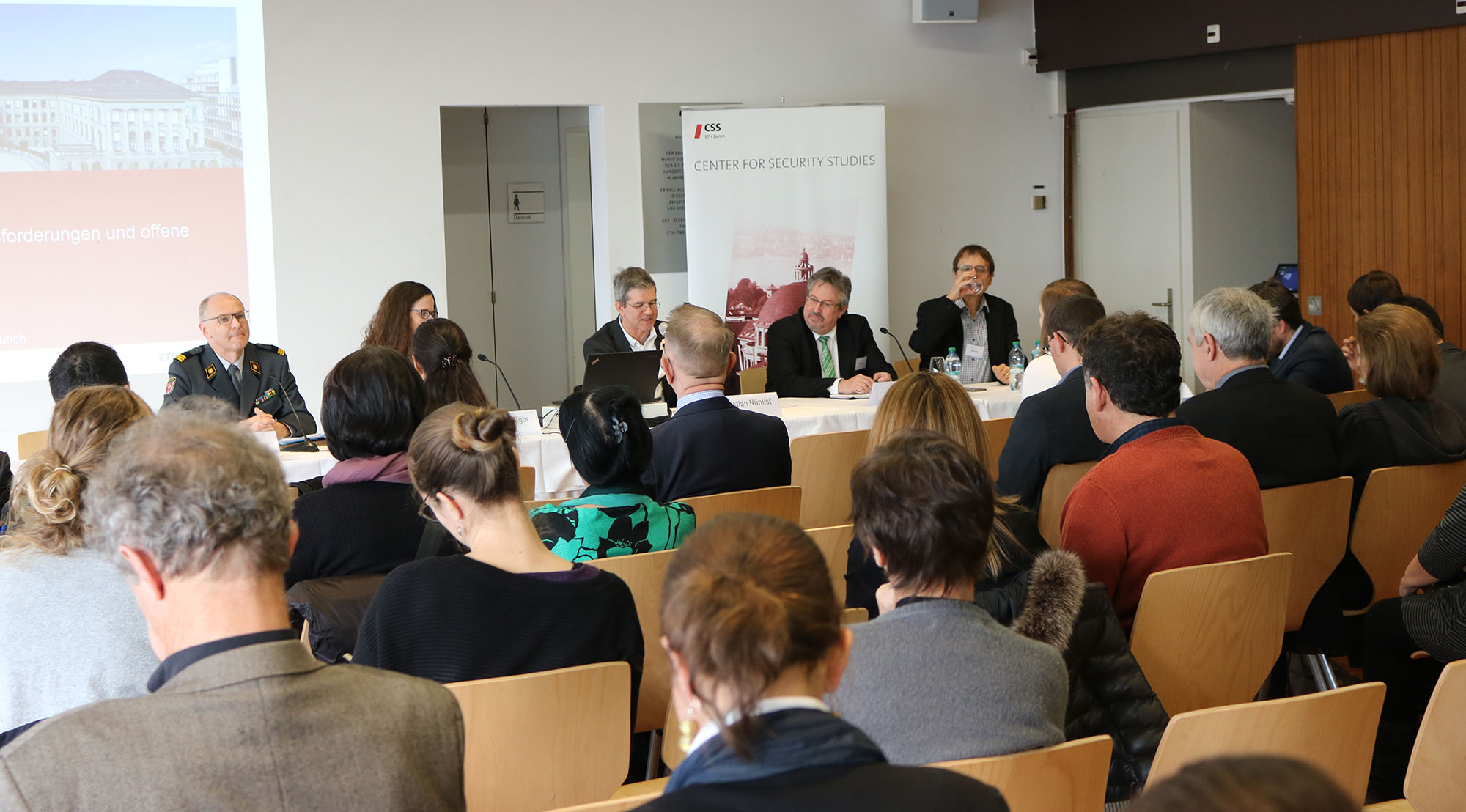On January 25, the 31st ETH Conference on Security Policy addressed the following questions: How do Swiss actors handle the issue of religion in conflicts? What challenges does this issue pose, both now and in the future? The participants included representatives from the public and humanitarian sectors, politics, the military, and civil society. The topics discussed at the conference ranged from the Swiss Wars of Kappel of the 16th century, mediation projects in southern Thailand and Kyrgyzstan and global trends in conflict and peace issues through to Islam in Swiss society. The following main findings emerged:
After the Second World War, new conflict prevention tools were introduced across the globe, which in many cases worked well in the course of the 20th century. Over the past two decades, however, conflicts have flared up in many places where traditional peacebuilding has failed. There is still a lot of catching up to be done, particularly when it comes to religious dimensions in armed conflicts.
Wanting to hold a debate at an ideological level in the midst of a conflict with religious dimensions does not help. The aim should not be to convince another party of the conflict to share your view on the world. Past examples and experiences from case studies currently being carried out show that finding solutions to practical problems facing both parties in a conflict in everyday life is a more effective approach, and can lead to cooperation and rapprochement.
Switzerland recognized the importance of religious dimensions in armed conflicts at an early stage and played a pioneering role in the approach to conflicts of this kind. A key aspect of the Swiss approach is to involve all important local actors in the peace process, without passing judgment on the different religious world views. This allows you to build on local structures and simplify the dialog. The “do no harm” principle, which is used to determine if peacebuilding efforts should be halted if there is a risk of causing more harm than good, is crucial here.


